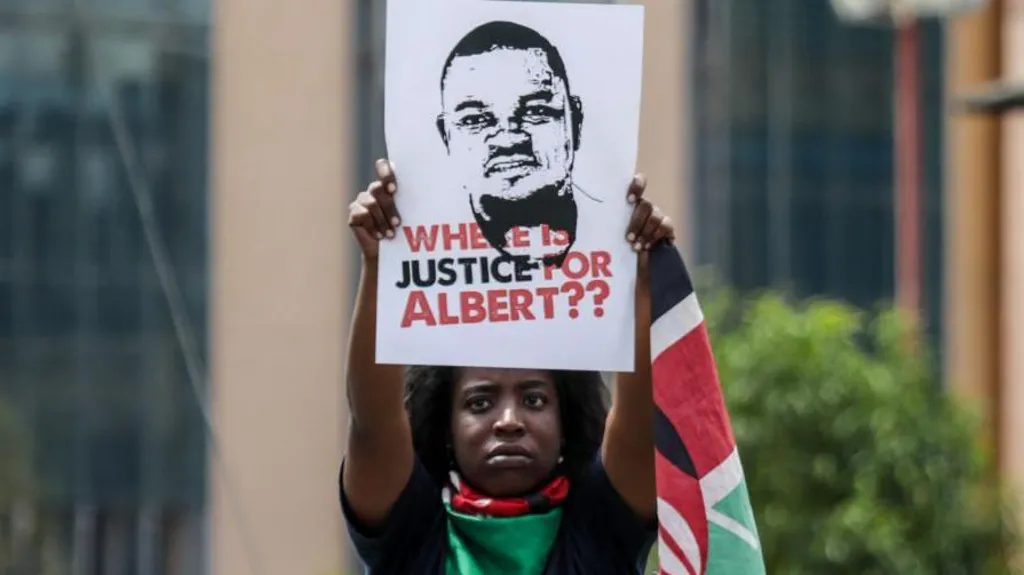Physical Address
Nairobi Kenya
Physical Address
Nairobi Kenya


By Ecamby Alex
In a riveting address before the Senate, Senator Crystal Asige stood tall not just as a lawmaker, but as a voice for truth and accountability. Her submission regarding the brutal and suspicious death of Albert Ojwang, a young Kenyan teacher and blogger, pierced through the silence that has enveloped a growing list of extrajudicial killings across the country. Albert’s death, while in police custody under dubious circumstances, is not an isolated tragedy, it is a telling indictment of the systemic failure of law enforcement and executive oversight in Kenya.
“Dead people don’t tell tales, Mr. Speaker, but the collective voice of Kenyans demands that this tale be told and justice be served immediately,” Senator Asige declared.
A Death That Should Not Have Happened
Albert Ojwang was reportedly arrested in Homa Bay without a warrant, and with no clear communication of the charges brought against him. He was then transferred over 350 kilometers away to Nairobi, an action that raises serious legal and moral questions. Why was due process not followed? What threat did Albert pose that required such a drastic and unnecessary relocation, instead of processing him locally?
While in custody, Albert died under unclear circumstances, with security chiefs giving contradictory statements. His death is a dark mark on a police service that is constitutionally mandated to protect, not harm, Kenyan citizens.
Constitutional Rights Violated
Senator Asige’s call for justice is firmly grounded in the Constitution of Kenya, which outlines various rights and procedural safeguards that appear to have been blatantly disregarded in this case:
Article 26 (Right to Life)
Albert’s right to life was violated. The State, through its agents (the police), failed to protect this most fundamental right. His death in custody, under the care and control of the State—points to either gross negligence or direct culpability.
Article 28 ( Human Dignity)
The manner of Albert’s treatment in custody was degrading. Detaining him far from home, denying him access to support systems, and the possibility that his death was linked to exposing corruption, strips away his dignity and rights.
Article 29 ( Freedom and Security of the Person)
This article protects individuals from torture (mental or physical), cruel treatment, and unlawful detention. Albert’s arrest and detention raise red flags on all counts.
Article 49 (Rights of Arrested Persons)
This includes:
None of these rights appear to have been observed.
Section 59 of the National Police Service Act
This provision mandates that every person taken into custody shall be treated humanely and that their safety is guaranteed. The failure to protect Albert while in custody contravenes this law.
Where Is Accountability?
As Senator Asige demanded, why have the Inspector General and his deputy not been held accountable? Their tenure has been stained with an alarming number of extrajudicial killings and unresolved deaths. When law enforcement becomes the executor of violence rather than the upholder of justice, then the very legitimacy of the State is in question.
President William Ruto has remained silent. No suspensions have been issued. No formal investigations have been made public. Meanwhile, allegations of corruption that Albert reportedly exposed before his arrest remain unexamined.
Albert Ojwang’s death must not be buried beneath bureaucracy, silence, and fear. His voice, his life, meant something, and it now symbolizes the greater call for systemic reform in Kenya’s justice and policing systems. The Constitution provides a framework for justice; it is time our institutions respected it.The Senate must continue to raise this issue. Civil society must not relent. The media must shine its light into this darkness. And the President must act not with words, but with decisive accountability. Until then, as Senator Asige warned, police stations will continue to serve not as centers of justice, but as crime scenes.
Justice for Albert is justice for all.
#WatchOutForNextRepublik